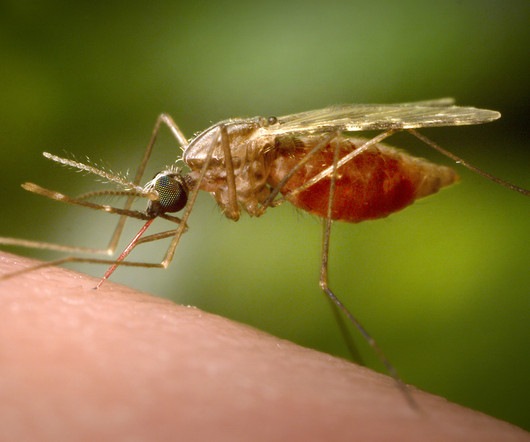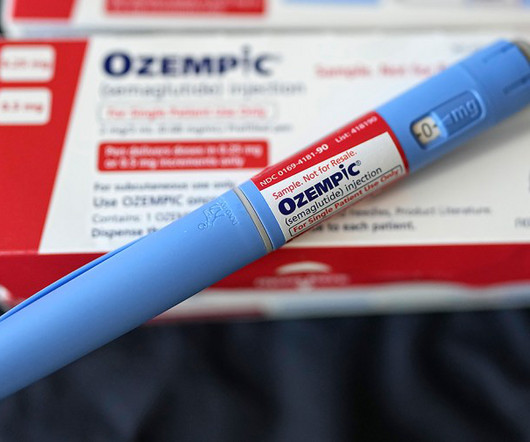New research finds trans teens have high satisfaction with gender care
NPR Health
OCTOBER 23, 2024
The survey published in JAMA Pediatrics showed that trans teens taking puberty blockers or hormones had very low rates of regret.

NPR Health
OCTOBER 23, 2024
The survey published in JAMA Pediatrics showed that trans teens taking puberty blockers or hormones had very low rates of regret.

Environmental Health News
OCTOBER 23, 2024
PITTSBURGH — Pollution from Pennsylvania’s three remaining coal-based steelmaking plants cause an estimated 50 to 92 premature deaths each year, according to a new report. The report , published by Industrious Labs, an environmental advocacy organization focused on decarbonizing heavy industry, looked at pollution and health data to estimate the total, facility-level, and state-level costs of the 17 coal-based steelmaking plants that are still in operation across the U.S., located in Indiana, Oh
This site is protected by reCAPTCHA and the Google Privacy Policy and Terms of Service apply.

NPR Health
OCTOBER 23, 2024
Their wages have always been low. With rising inflation and falling prices paid by Western companies for clothing, they're protesting for better pay — and hoping the new government will spur change.

Environmental Health News
OCTOBER 23, 2024
This story was originally published in The New Lede , a journalism project of the Environmental Working Group, and is republished here with permission. New types of Roundup weed killing products marketed to U.S. consumers contain chemicals that pose greater health risks to people than prior formulations suspected of causing cancer, according to an analysis by an environmental health advocacy group.

NPR Health
OCTOBER 23, 2024
Egypt has been fighting malaria for nearly 100 years. WHO declares a country malaria-free when the disease has not been present for at least three consecutive years before the designation.

Science Daily: Pharmacology News
OCTOBER 23, 2024
Researchers have used artificial intelligence to design thousands of new DNA switches that can precisely control the expression of a gene in different cell types. Their new approach opens the possibility of controlling when and where genes are expressed in the body, for the benefit of human health and medical research, in ways never before possible.
Public Health Engage brings together the best content for public health professionals from the widest variety of industry thought leaders.

Environmental Health News
OCTOBER 23, 2024
Laura Diaz joins the Agents of Change in Environmental Justice podcast to discuss the intersection of social and environmental stressors on children’s health. Diaz, a current fellow and a Ph.D. student in Environmental Health Sciences at UC Berkeley, also talks about how her own childhood shaped her understanding of environmental injustice, and how being a mother has shaped her research – and her life.

NPR Health
OCTOBER 23, 2024
For the past 70 years, schizophrenia treatments all targeted the same chemical: dopamine. While that works for some, it causes brutal side effects for others. An antipsychotic drug approved last month by the FDA changes that. It triggers muscarinic receptors instead of dopamine receptors. The drug is the result of a chance scientific finding. from a study that wasn't even focused on schizophrenia.

The Hill
OCTOBER 23, 2024
The Food and Drug Administration (FDA) issued a Class II recall of more than 7,100 bottles of the antidepressant duloxetine due to the possible presence of a carcinogen. Duloxetine belongs to a group of drugs called selective serotonin and norepinephrine reuptake inhibitors that are used to treat depression and anxiety, according to the Mayo Clinic.

Science Daily: Pharmacology News
OCTOBER 23, 2024
How long a person can stand -- on one leg -- is a more telltale measure of aging than changes in strength or gait, according to new research.

Science Daily - Public Health
OCTOBER 23, 2024
The European research project 'Federated Secure Computing' presents a new approach that allows patient data from different institutions to be analysed securely and anonymously.

Science Daily: Pharmacology News
OCTOBER 23, 2024
In the face of rising CO2 levels, scientists are searching for sustainable ways of pulling carbon dioxide out of the air, so-called direct air capture. A new type of porous material, a covalent organic framework (COF) with attached amines, stands out because of its durability and efficient adsorption and desorption of CO2 at relatively low temperatures.

The Hindu
OCTOBER 23, 2024
The states of Uttar Pradesh, Rajasthan, Gujarat, Maharashtra and Madhya Pradesh reported the highest levels of inadequate diversity in children's diets -- all above 80 per cent -- while Sikkim and Meghalaya were the only two to report an under-50 per cent prevalence

Science Daily: Pharmacology News
OCTOBER 23, 2024
Photosynthesis, the chemical reaction that enables almost all life on Earth, is extremely inefficient at capturing energy -- only around 1% of light energy that a plant absorbs is converted into chemical energy within the plant. Bioengineers propose a radical new method of food production that they call 'electro-agriculture.' The method essentially replaces photosynthesis with a solar-powered chemical reaction that more efficiently converts CO2 into an organic molecule that plants would be genet

The Hill
OCTOBER 23, 2024
Novo Nordisk wants the Food and Drug Administration (FDA) to prevent compounding pharmacies from manufacturing their own versions of the company’s popular weight loss drug Wegovy and diabetes treatment Ozempic, arguing the drugs are too complex for the pharmacies to make safely. Compounded anti-obesity drugs are sold at vastly lower prices than the branded versions and can give patients needed access to drugs that are in shortage.

Science Daily: Pharmacology News
OCTOBER 23, 2024
A surprising discovery about the black hole V404 Cygnus is expanding our understanding of black holes, the objects they can host, and the way they form.

Science Daily - Public Health
OCTOBER 23, 2024
Researcher presents a new model for risk research which takes interactions into account and brings together various disciplines.

Science Daily: Pharmacology News
OCTOBER 23, 2024
The new mammal lived in Colorado 70 to 75 million years ago -- a time when a vast inland sea covered large portions of the state, and animals like sharks, turtles and giant crocodiles abounded.

The Hindu
OCTOBER 23, 2024
Living with a cat can have a profound – and sometimes surprising – effect on our physical and mental health.

Science Daily: Pharmacology News
OCTOBER 23, 2024
Bacteria and fungi from the wings of bats could play a significant role in saving them from white-nose syndrome (WNS), a fungal disease affecting the skin of wings and muzzle, which has nearly wiped out vulnerable bat populations across North America.

University of Minnesota School of Public Health
OCTOBER 23, 2024
The past few months have been incredibly heavy. The news cycle never seems to slow down, and there are so many people who are dealing with extraordinarily difficult circumstances.

Science Daily: Pharmacology News
OCTOBER 23, 2024
Healthy coral reefs echo with a chorus of grunts and purrs from fish feeding, looking for mates, or defending their territories, underscored by the persistent crackling of snapping shrimp. Larval corals use these sounds as cues to decide where to choose a home. The researchers found that now a second species of coral larvae responded to the sounds of a healthy reef played through a speaker, indicating 'acoustic enrichment' encourages coral to settle has the potential to be a widely applicable me

Science Daily - Public Health
OCTOBER 23, 2024
A new paper explains why there needs to be a shift in cannabis policies to a public health approach as opposed to the prevailing, more punitive approach that pushes abstinence instead of public education. With cannabis now legal to some extent in most U.S. states, the authors say the case for such a shift is all the more urgent.

Science Daily: Pharmacology News
OCTOBER 23, 2024
Researchers have reduced scar formation and improved heart function in mouse models of heart failure using a monoclonal antibody treatment, similar to that approved by the FDA to treat other conditions. The findings point to the possibility of developing such immunotherapies for heart failure in patients who have experienced a heart attack or other injury.

Science Daily - Public Health
OCTOBER 23, 2024
Planning policies to restrict the number of new fast-food outlets leads to fewer overweight and obese children according to research. Researchers examined the impact of policy in the North East of England where Gateshead Council prevented any existing non-fast-food commercial property from being converted into a hot fast-food takeaway. In sub-group analysis by area level deprivation, they found that those quintiles of deprivation within Gateshead with the highest proportion of fast-food outlets

Science Daily: Pharmacology News
OCTOBER 23, 2024
A sequence of events during the evolution of certain rocky planets orbiting M-dwarfs, the most common stars in the universe, creates an atmosphere that would be stable over time. This is true for more temperate planets, orbiting a bit farther from the central star.

Mercola
OCTOBER 23, 2024
You may have noticed the term "cortisol face" trending across social media platforms. Influencers claim facial puffiness and swelling are telltale signs of elevated cortisol levels, often starting their videos with catchy phrases like, "You're not ugly, you just have cortisol face." 1 While this trend has brought attention to cortisol, it barely scratches the surface of the real health concerns associated with chronically high levels of this stress hormone.

Science Daily: Pharmacology News
OCTOBER 23, 2024
The transition from water to land is one of the most significant events in the history of life on Earth. Now, a team of roboticists, palaeontologists and biologists is using robots to study how the ancestors of modern land animals transitioned from swimming to walking, about 390 million years ago.

RAND
OCTOBER 23, 2024
Japan's new PM, Shigeru Ishiba, faces criticism for controversial proposals. However, as he transitions from campaign to governance, his policies may become more pragmatic.

Science Daily: Pharmacology News
OCTOBER 23, 2024
Manipulating a newly identified neural circuit can curb appetite -- or spur massive overeating.

RAND
OCTOBER 23, 2024
Russia's efforts to boost drone production face challenges due to reliance on foreign parts, especially from China. Despite ambitions to produce 1.4 million drones, systemic issues and sanctions hinder domestic output. Moscow's dependency on China may grow as it struggles to meet targets.

CHIRblog
OCTOBER 23, 2024
Open enrollment for the Affordable Care Act Marketplaces begins on November 1. We we review several important policies and programmatic changes that could effect Marketplace consumers in 2025.

The Hindu
OCTOBER 23, 2024
India's robust Acute Flaccid Paralysis surveillance system is crucial for maintaining its polio-free status and preventing outbreaks.

Your Local Epidemiologist
OCTOBER 23, 2024
Last year was the first time we had RSV vaccines and preventive monoclonal antibodies for a subset of people—pregnant women, older adults, and babies. This is a huge deal, as RSV poses a massive burden on health, health systems, and individuals every year. While clinical trial data blew expectations out of the water, “real-world” data after a vaccine roll-out can be different because it’s not happening in a tightly controlled environment, and many more people are getting
Let's personalize your content